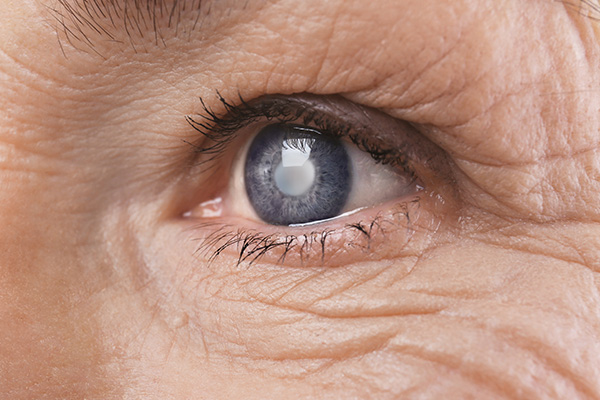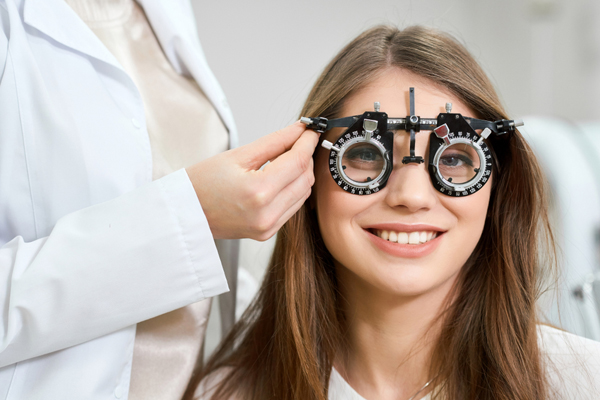4 FAQs About Cataract Surgery

Cataract surgery is an operation to remove the lens of your eye when it is cloudy. There is no proven way to prevent a cataract from forming. Fortunately, cataracts can be treated with surgery. If your vision gets cloudy, your optometrist may suggest cataract surgery.
Frequently asked questions
Just like with any other procedure, it is common to have questions. A patient needs to learn as much as possible about cataract surgery. A person should be well-informed before deciding to have surgery. Below are some answers to frequently asked questions.
Is cataract surgery effective?
Surgery can effectively treat cataracts. Many patients have benefited from cataract surgery. This is one reason cataract removal is a common operation. The procedure is not complicated.
Who should have surgery?
Some symptoms of cataracts may be improved with magnifying lenses, new eyeglasses or brighter lighting. If these are not helpful, surgery may be needed. A cataract should be removed when vision loss and problems impact everyday activities such as reading, driving or watching television. Some indications of a cataract are blurry or cloudy vision, double vision in one eye and poor night vision.
A cataract may make light from headlights, lamps or the sun to appear too bright or glaring. These symptoms affect close-up vision, interfere with reading and make it hard for people to drive. People can also find it difficult to tell similar colors apart or to determine how far objects are. These problems affect a person’s ability to do normal everyday tasks. If a person has any of these symptoms, surgery can help. Sometimes a person may need surgery even if a cataract does not cause any problems.
How is cataract treated?
Cataract surgery involves the removal of an eye lens and then replacing it with an artificial one. The new lens does not need care and can help improve vision. There are different types of operations for cataracts. Two effective approaches are extracapsular surgery and small-incision cataract surgery.
Small-incision cataract surgery involves making a tiny incision in the cornea. A small probe is then inserted into the eye. The probe gives off ultrasound waves that break up the cloudy lens. A surgeon may call this process phacoemulsification. The surgeon will remove the pieces and then put in the new artificial lens.
Extracapsular surgery is sometimes also called large-incision surgery. It requires a larger incision in the cornea. This allows the surgeon to remove the lens core in one piece. Through the incision, a surgeon will open the lens capsule, remove the central lens portion and leave the capsule in place. A patient may need more time to heal from this approach than the small-incision approach.
What happens after cataract surgery?
For many people, recovery goes smoothly. The recovery period depends on the approach used. Patients often need follow-up evaluations. They help monitor the healing process. Sometimes, contact lenses or eyeglasses may be prescribed.
Contact your optometrist
Cataracts may interfere with your daily activities. It is always advisable for a person to have them removed early. Cataract surgery may help you have better vision. If you suspect you have cataracts, contact your optometrist immediately.
Are you considering cataract surgery in the Mt Vernon area? Get more information at https://brighteyesmv.com.
Check out what others are saying about our services on Yelp: Read our Yelp reviews.
Recent Posts
Emergency eye care is needed if you find yourself dealing with a problem with your eye that causes pain or affects your vision. Failing to treat eye injuries as soon as they are detected can lead to permanent consequences, like reduced vision or blindness. Common eye injuries that require emergency eye care include: Exposure to…
Looking for more information on eye protection? An ophthalmologist knows everything there is to know about protecting the eyes. While there are a few different types of eye care professionals, ophthalmologists are eye care professionals who have undergone additional years of education and training so they can offer their patients both medical and surgical eye…
Controlling myopia at an early age can slow down its progression. This can help prevent yearly upgrades for stronger glasses. Your optometrist can help by offering various treatments. If you want to find out how your optometrist can help control myopia, here are the details.Optometrists use atropine eye drops to achieve short-term myopia control results.…
Another word for an itchy eye is ocular pruritis. It is a common health situation in many people. Itchiness in your eyes is more than enough reason to see an optometrist. Receiving prompt treatment is important in receiving prompt relief. If you want to know what causes an itchy eye and the treatments for it,…
>



